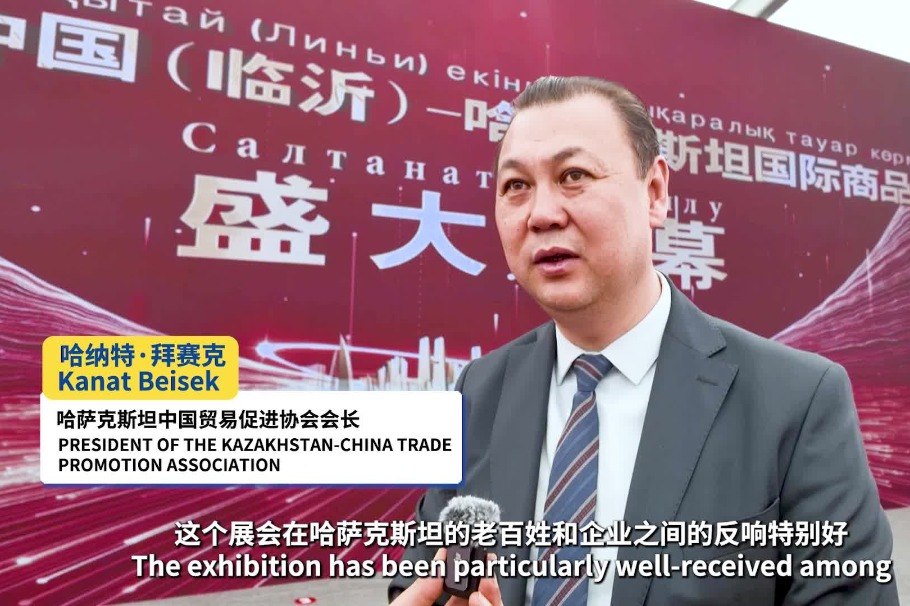New Washington Consensus hurts


The US' suppression of China in the trade sector is undermining the very foundation of bilateral ties and disrupting global trade landscape, bringing more uncertainties to world economy
With the international order undergoing profound changes, the United States has made a major adjustment to its foreign trade strategy. The protectionism launched by the earlier Donald Trump administration was not scrapped by his successor Joe Biden; instead it has increasingly become the core of Washington's foreign trade strategy. The trade liberalization and free market economics advocated by the Washington Consensus was replaced by a "new Washington Consensus" that espouses protectionism and pragmatism.
Under the new circumstances, foreign trade not only serves the economic interests of the US, but also becomes a geopolitical tool Washington uses to preserve its global hegemony. As a trade and economic powerhouse, the US is reshaping the global economic landscape and having a profound influence on geopolitics and global relations by adjusting its foreign trade policy.
First, it is leading to a change in the US' trade policymaking mechanism.
In the past, the US' foreign trade strategy was mainly aimed at expanding free trade, and US trade representatives played an important role in promoting negotiations on bilateral and multilateral trade deals, pushing for the opening-up of foreign markets, and coordinating with the World Trade Organization. But as the WTO has been increasingly marginalized by the US, the US trade representatives have become a saboteur, instead of being a communicator between the US' trade agenda and the WTO.
As the role of the US trade representative has weakened, the US Department of Commerce has assumed bigger power in foreign trade issues. As the country tightens export controls, the Commerce Department is playing a larger role in examining and approving export products. And as the US steps up fiscal support for prioritized industries, the department has become more important for its responsibility in screening eligible enterprises and projecting and granting subsidies. For instance, the department has granted tens of billions of US dollars in subsidies to the semiconductor sector during the Biden administration.
The US Treasury is also playing a bigger role in trade-related issues since it is in charge of granting tax credits to eligible enterprises in the clean energy field according to the Inflation Reduction Act. With the US foreign trade agenda increasingly serving its national security and major-power competition strategy, traditional non-commerce departments are more engaged in the making of trade policies.
Second, it is reshaping the US' domestic landscape of economic interests distribution.
Manufacturing is the largest beneficiary of the US' trade policy adjustment, which is intended to revive the country's hollowed-out manufacturing sector and boost the competitiveness of "Made in the US". Although the US manufacturing sector has not regained its peak phase, the decline has been arrested to a certain degree and a resurgence has been observed, with jobs and salaries on the rise.
Some regions have benefited from the influx of manufacturing investment. For example, the rust belt states of Indiana and Wisconsin in the north have seen their decline slowing down, and the manufacturing sector in southern states such as Texas and Louisiana has also developed for the better.
In contrast, multinationals, particularly large tech companies, are those whose interests have been impaired. Resorting to protectionist moves, the US government has reduced support for tech companies' global expansion. In the meanwhile, some multinationals have been forced to cut exports to countries sanctioned by the US, such as Russia and China, and curtail operations in these countries. For instance, Qualcomm and Intel have suffered significant losses due to the US' ban on exports of semiconductors to Huawei.
Third, it is intensifying geopolitical and economic competition and fragments the world economy.
Due to the US' increasingly prioritizing security in its foreign trade agenda, normal trade and economic relations have been disrupted, global production and trade networks are being restructured, and countries are being forced to choose a division of labor system that best suits their interests.
The US is trying to isolate China and draw more countries to join the US-led trade and economic system. But as it is unable to provide more public goods to the new partners in this US-led trade system, these countries cannot benefit from joining it and, rather, they have to pay the costs for the shift. The US' destructive foreign trade policy has had huge impacts on the global economy. According to the International Monetary Fund, the world is increasingly divided into three major trade blocs — a Western one led by the US and its allies, one with China and other BRICS nations at the core, and one of nonaligned states. The trade volume between the three blocs is 12 percent lower than the figure for trade within each bloc, with the pace of decline surpassing that at the beginning of the Cold War.
Fourth, it is damaging the China-US trade and economic ties.
Since Biden took office, the share of the US' imports from China in its total imports dropped by 4 percent. In 2023, the US and China traded $664.5 billion worth of goods, a year-on-year decrease of 11.6 percent, which marked the sharpest decline since the two countries established diplomatic relations.
Though the US government has replaced the original narrative of "decoupling" from China with "de-risking" from China, its trade policy is essentially still aimed at containing China. In these circumstances, China-US trade will keep shrinking and face systematic restructuring.
The first is interest restructuring. The old interest structure will be reshaped along with the adjustment of the US' trade policy, and whether a new equilibrium can be formed will depend on the strategic directions of the two countries.
The second is rules restructuring. The US government attempts to seek legitimacy for its adjusted trade strategy by changing domestic and foreign policies. The US and China will compete over setting global economic and trade rules, and it remains to be seen whether a new set of rules can be agreed on by both countries.
The third is space restructuring. The geological landscape of labor division formed by old trade relations will face major changes, and the US and China are seeking to formulate a new landscape of labor division. Thus, a restructuring of industry chains is inevitable.
Interdependent trade relations have long been the cornerstone of China-US relations. The US' suppression of China in the trade sector undermines the very foundation of bilateral ties and disrupts global trade landscape, bringing more uncertainties to the world economy.
The author is deputy director and professor of the Center for American Studies at Fudan University. The author contributed this article to China Watch, a think tank powered by China Daily.
The views do not necessarily reflect those of China Daily.
Contact the editor at editor@chinawatch.cn.


































